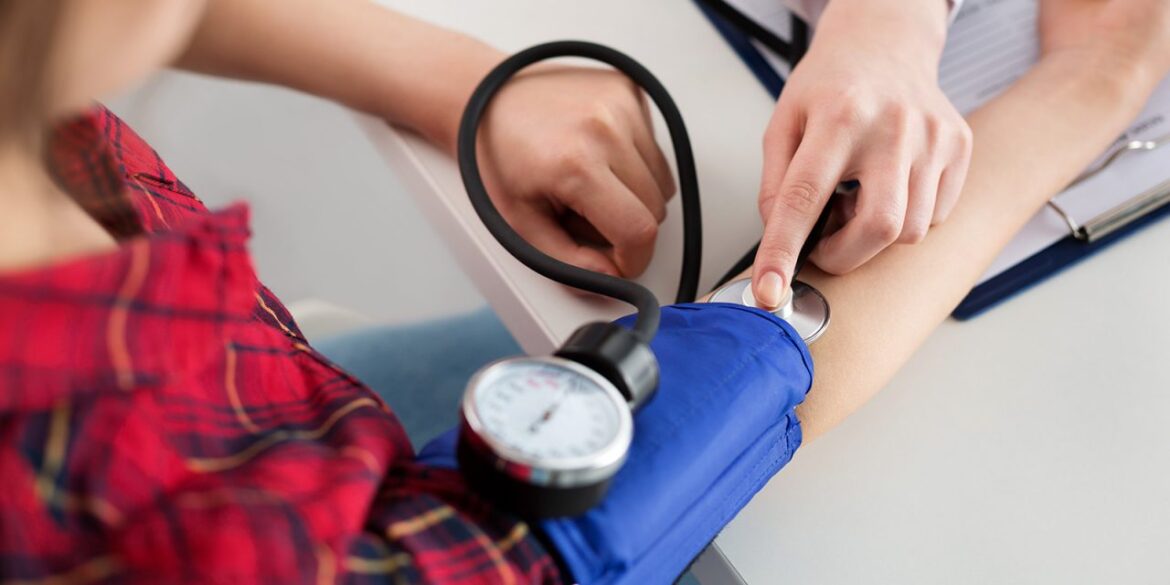High blood pressure is a silent killer, and this is no metaphor. In the United States alone, this cardiovascular problem claims the lives of over half a million people each year.
Understanding High Blood Pressure and Its Dangers
High blood pressure, often referred to as the silent killer, earned that name for a reason. Hypertension, or high blood pressure, frequently presents no glaring symptoms yet significantly increases the risk of severe cardiovascular issues and strokes.
- The Measurement of Blood PressureBlood pressure is typically measured using two numbers:
- Systolic pressure indicates how much force (in millimeters of mercury) your blood exerts on the walls of your blood vessels during a heartbeat. This is referred to as systole.
- Diastolic pressure, which records the force of your blood when your heart is at rest between beats. The relaxation of the heart muscle is known as diastole.
Quick Ways to Lower Blood Pressure at Home
It’s essential to note that if you have concerns about hypertension, you should seek a medical evaluation from a general practitioner. Depending on your blood pressure levels, lifestyle, and other factors, your doctor will create an individualized plan for prevention and treatment, which may include medications to bring your readings within the normal range.
- Take Several Deep BreathsStudies indicate that proper deep breathing is one of the most effective methods for rapidly reducing blood pressure. This is due to the increased blood flow to various body parts, including your limbs.
- Relax and Close Your Eyes: Begin by relaxing and closing your eyes, which can help reduce stress levels, a primary trigger of hypertension.Deep Breathing Technique: Take a deep breath while counting to 5. Breathe from your diaphragm, not your chest. Place your hand on your abdomen to ensure it rises with each inhalation.Exhale Slowly: Exhale slowly, also counting to 5.Repeat: Repeat this for 3-5 minutes.
- Take a Warm Bath. Fill a basin with water at approximately 45°C and submerge your hands or feet for 10 minutes. The warm water causes the blood vessels in your limbs to dilate, increasing blood flow and reducing high blood pressure.
- Drink Warm Mint Tea. If you are not allergic to mint, steep a pinch of mint leaves in boiling water for 10 minutes, let it cool and drink it slowly. Peppermint may have the effect of lowering blood pressure. However, be cautious, as mint can enhance the impact of blood pressure-lowering medications.
- Take Valerian Tablets. Valerian is a potent herbal sedative that helps the body cope with stress. It can help calm your heart rate, thus lowering blood pressure. When taking valerian, do not exceed the dosage recommended in the instructions.
How to Sustain Lower Blood Pressure Without Medication
To reiterate, the abovementioned methods for reducing blood pressure at home are for immediate relief and should not replace professional medical advice. Hypertension, the silent killer, requires medical intervention guided by a healthcare provider.
- Lifestyle Changes to Sustain Lower Blood Pressure
- Lose Excess Weight: For every kilogram lost, your blood pressure may drop by roughly 1 point.
- Regular Exercise: Engage in at least 30 minutes of aerobic activity daily to reduce your blood pressure by 5-8 points.
- Healthy Diet: Consume a diet rich in fruits, vegetables, and whole grains while minimizing fats and processed foods. Adjusting your diet can help decrease your blood pressure by up to 11 points.
- Cut Back on Salt: Reduce salt intake to lower blood pressure by 5-6 points.
- Limit Alcohol: Abstain from alcohol or adhere to recommended limits.
- Quit Smoking: Smoking increases blood pressure.
- Control Caffeine: Reduce caffeine intake if it affects your blood pressure.
- Manage Stress: Chronic stress is a primary trigger for high blood pressure.
- Monitor Blood Pressure at Home: Home monitoring helps you understand the effectiveness of lifestyle changes.
- Seek Support: Share your problem with friends and family and ask for assistance.
In conclusion, high blood pressure is a significant health concern, and you should address it promptly under the guidance of a healthcare professional. With the right lifestyle changes, you can either overcome hypertension entirely or significantly reduce your reliance on medication. Your heart’s health depends on it.

